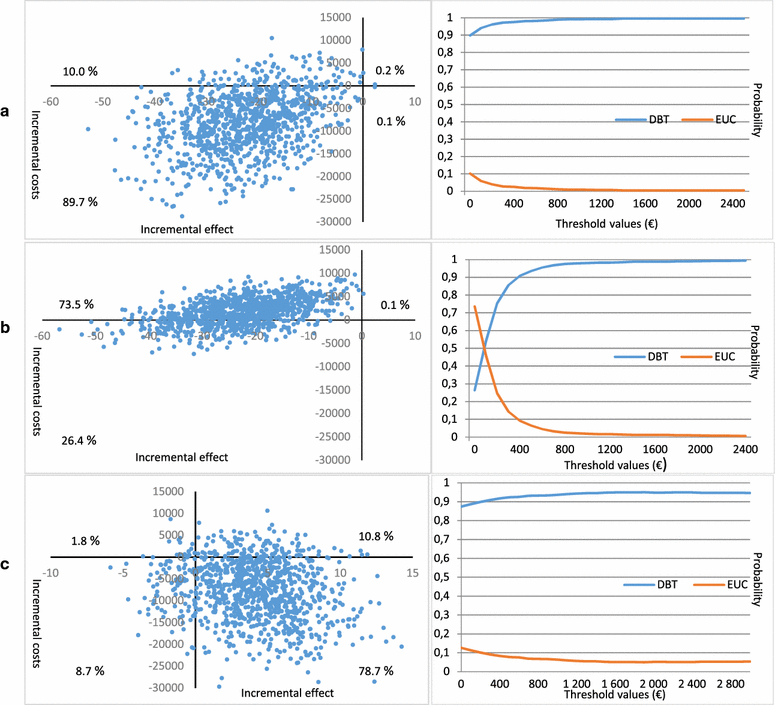Cost-effectiveness of dialectical behaviour therapy vs. enhanced usual care in the treatment of adolescents with self-harm
- PMID: 29743941
- PMCID: PMC5928596
- DOI: 10.1186/s13034-018-0227-2
Cost-effectiveness of dialectical behaviour therapy vs. enhanced usual care in the treatment of adolescents with self-harm
Abstract
Background: Studies have shown that dialectical behaviour therapy (DBT) is effective in reducing self-harm in adults and adolescents.
Aims: To evaluate the cost-effectiveness of DBT for adolescents (DBT-A) compared to enhanced usual care (EUC).
Methods: In a randomised study, 77 adolescents with repeated self-harm were allocated to 19 weeks of outpatient treatment, either DBT-A (n = 39) or EUC (n = 38). Cost-effective analyses, including estimation of incremental cost-effectiveness ratios, were conducted with self-harm and global functioning (CGAS) as health outcomes.
Results: Using self-harm as effect outcome measure, the probability of DBT being cost-effective compared to EUC increased with increasing willingness to pay up to a ceiling of 99.5% (threshold of € 1400), while with CGAS as effect outcome measure, this ceiling was 94.9% (threshold of € 1600).
Conclusions: Given the data, DBT-A had a high probability of being a cost-effective treatment.
Keywords: Cost-effectiveness; Longitudinal; Psychotherapy; Randomised trial; Self-harm.
Figures

References
LinkOut - more resources
Full Text Sources
Other Literature Sources

